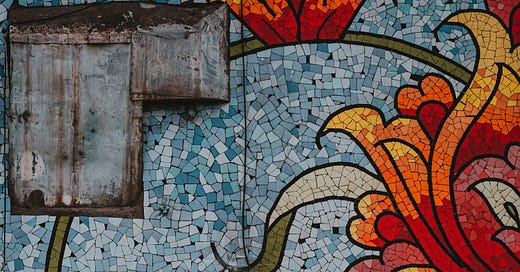Americans carry in our genes the history that shaped our country: genes of colonists, immigrants, the indigenous, the enslaved. I ended my last post with that point.
THE PAST IN THE PRESENT
Responses from readers have reminded me that we also carry that history in our culture: in our food, our music, our art and entertainment and literature.
That heritage also shapes our individual psyches. Recent work on inter-generational trauma shows, for instance, that survivors of abuse sometimes cope by closing themselves emotionally – which in turn affects their children. (The same is true of inter-generational strengths; I learned persistence from both my parents.) And of course we’re still learning about the legacy of Indian boarding schools, of centuries of racism.
Less is said about the effect on women of the lives of their mothers and grandmothers. From one reader:
“I’ve been pondering how the women in my ancestral lineage felt about their lives and lack of opportunity. Did they feel trapped? How did they handle being enterprising and smart? How have their thoughts and beliefs and actions influenced their daughters and granddaughters?
“When I left home for a new life I was only vaguely aware of how much my mom had to manage. Dad was ill, crotchety, and drank too much. My siblings were in their teens, with behavior and various drug problems; all this topped by a new baby at age 48. She told me later that my father had changed into a completely different man that she could no longer love, but could not be so cruel as to leave.
“I was in a miserable relationship for much of my 20s, but felt I had to stay. My mom was a stoic about her life, and I picked that up too, not grasping for much, not overly ambitious besides just managing whatever came along. That's what I still do. Manage. Now that I think of it, just like my mom! No fussing.” Marie
Like Marie, I’ve only recently realized how trapped the women of my mother’s generation had been. One, a victim of date rape, moved to a small town until she gave birth, then surrendered the baby for adoption, and kept the secret all her life. Another never married, and considered her life a failure. Still another married late and unhappily – there was so little social space for unmarried women (and even less space in the world of paid work) that she probably felt forced into that marriage. How many marriages were like that? How did it affect the children?
SELECTING STORIES
My major point, however, was the variety of cultures that have always been part of what our country is. One reader saw a parallel:
When my grandmother went through her scrapbooks, she told the stories as if they were all equal. She’d have news clippings of a family member who was arrested for smoking marijuana, about family members who were high up in the church or held political office. These stories were intermingled with an arrest record of someone who shot her husband -- and so on. She told each story in the same voice with absolutely no judgment. Each story was just a part of the family history -- no more, no less. Jennifer
And yet there was some selection: no party invitations, not photos, just what was in the paper—what the paper had chosen to print. Similarly, I selected: The ways in which various ways of life melded into the variegated society we have today. And those ways, yes, I treated as equally important.
Choosing means leaving things out.
I would like a discussion not only of displacement and genocide, but of attempts to live together or at least in adjacent communities. And I would point out that not all our laws allow us to live in peace. Bruce
All of that is true, and important to the picture I could only sketch. And yes, although we cannot live in peace without the rule of law, a lot of that rule has been -- remains -- oppressive.
THE YEARS AHEAD
To live is to change. Some of those who oppose “multiculturalism” as if it were something new, and who oppose immigration from non-European countries, are afraid, even existentially afraid, that the influx of new will destroy the old. I see instead continuous dynamism, the vigor of a country that has always been hybrid.
What would it take to really destroy a culture? Probably the physical extermination of everyone in it. Short of that, most Indian cultures have survived, in much altered form, but survived. Attempts to ossify a culture can strangle it. As I understand Korea, its years as a hermit kingdom left it too feeble to resist Japanese occupation – but it emerged from those decades still decidedly Korean, and as it meets and embraces global culture, far from being erased, it has a new vigor.
Some of what has disappeared in the United States is well gone; other losses may be sad. Immigration, given the chaos and suffering across the globe, will continue to challenge us both morally and practically. But on the whole I see the vigor of American culture as depending as it always has on the steady injection of new energy.
s





I agree the US should continue to accept immigrants who provide labor and add to our cultural stew. I read an article that provides hope for dealing with immigrants on our southern border. It seems that some companies wish to relocate their plants to Mexico from China--less problems with length of time to access shipments, more open trade policies. This would open up jobs for Mexicans and also for their neighbors to the south fleeing crime, corruption, and poverty. I should add immigrants who are impacted by severe weather brought on by climate disasters. Margo